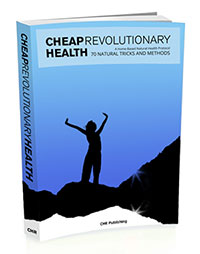Preserving Energy
"Decision fatigue, latest research, is saying that you can only make a certain amount, a set amount, of good decisions a day, and after that you can't [...] I do believe that after a certain amount of focused effort people suffer from mental fatigue and that's when they make more mistakes, that's when people become shorter with their temper, that's when people make less than the best decisions, because of fatigue and exhaustion, because they are so focused on other activities and such. [...] There are so many distractions [...] out there"
– Jim Kwik in an interview with Tom Bilyeu, available on You Tube
"The average man lacks the energy to deal with sorcery. [...] It isn't that as time goes by you're learning sorcery; rather, what you're learning is to save energy."
– Don Juan, in 'Carlos Castaneda: The Power of Silence'
Each day we have a limited amount of energy to utilize. Even though we can get 'dopamine hits' from surfing the internet, from Facebook, or from watching TV, we expend some of our mental and emotional energy while doing it and this energy won't be available to use on other tasks which we may value more, such as spending focused time with our loved ones, creative pursuits, or spending time alone in silence, with our own thoughts – whatever tasks you feel are important to your life and your long-term goals.
There are many types of energy. As pointed out by Jim Kwik above, decision-making uses up energy. Problem-solving in general can require a great deal of energy, if continued for a long time. Our environment can sap energy out of us, if it is not uplifting and inspiring. We have a certain, limited amount of physical energy for exercise. Eating difficult-to-digest food also uses a lot of energy that the body could otherwise use for other tasks. The Taoists attempt to preserve sexual energies and convert them into a different type of energy that is healing, more enjoyable, and spiritually enlightening.
We should learn to recognize what saps these energies out of us and seek to preserve them and use them wisely. It is a good idea to plan your daily (and longer-term) energy use to some extent. Set goals for 1) energy preservation, and 2) energy-creating activities. Plan your day and week so that you allocate time for these goals, batch tasks, and try to stay aware of any distractions that creep into your day.
Remove anything unnecessary from your list of tasks (at work and at home) but always include tasks that are important for a good life (e.g. healthy and enjoyable meals, exercise, tasks that counter-balance stress, etc.) – be realistic about the time needed to complete these tasks. Focus your thoughts, remind yourself daily of your most important goals. Try to eliminate unnecessary and/or negative thoughts and conversations. Be aware of when and how you start conversations – certain topics may be more suitable topics for another time. Recognize that unnecessary talking can scatter your mental focus and steal time from more important things.
Having routines for mundane daily tasks may help preserve energy:
"When you avoid investing your creative energy in low-impact decisions, you free up that creative energy to be put to good use elsewhere. [...] Routinize your mundane daily decisions, so you can wisely invest more of your precious mental energy in your high-impact goals and projects."This article is a sample chapter from the CHR ebook, which can be bought or borrowed on Amazon Kindle.
– Steve Pavlina in 'Conserving Mental Energy' blog post
References:
- Jim Kwik in an interview with Tom Bilyeu, available on You Tube
- Carlos Castaneda: 'The Power of Silence' (book)
- Steve Pavlina in 'Conserving Mental Energy' blog post
Continue reading....
Eating for Energy
B12 Energy Vitamin
Carbohydrates Increase Energy
How to Beat Tiredness
Trapped Energies of Trauma
Adrenal Insufficiency
How to Sleep Less
Doing Less Makes You More Creative
We Recommend
Latest Articles
Most Popular Articles
Collection of Best Raw Food Articles
Juice Fasting Articles
Book Summaries
Natural Remedy Library A-Z

Edition 3.0: Cheap Revolutionary Health Ebook: 68 Natural Tricks and Methods - The Amazing Power of Small Everyday Tasks
To be safe, please consult your health-care provider before attempting self-treatment for health issues.
Navigation
Home Latest Articles Conditions A-Z Raw Food Juice Fasting Recipes My Health Journey Best ArticlesGet in Touch:
Contact Us Instagram: "Good Life Meals"About CHR:

Ulla is the Editor of Cheap Health Revolution, covering natural remedies and health solutions. Read more about Ulla and this website here: "About CHR"









